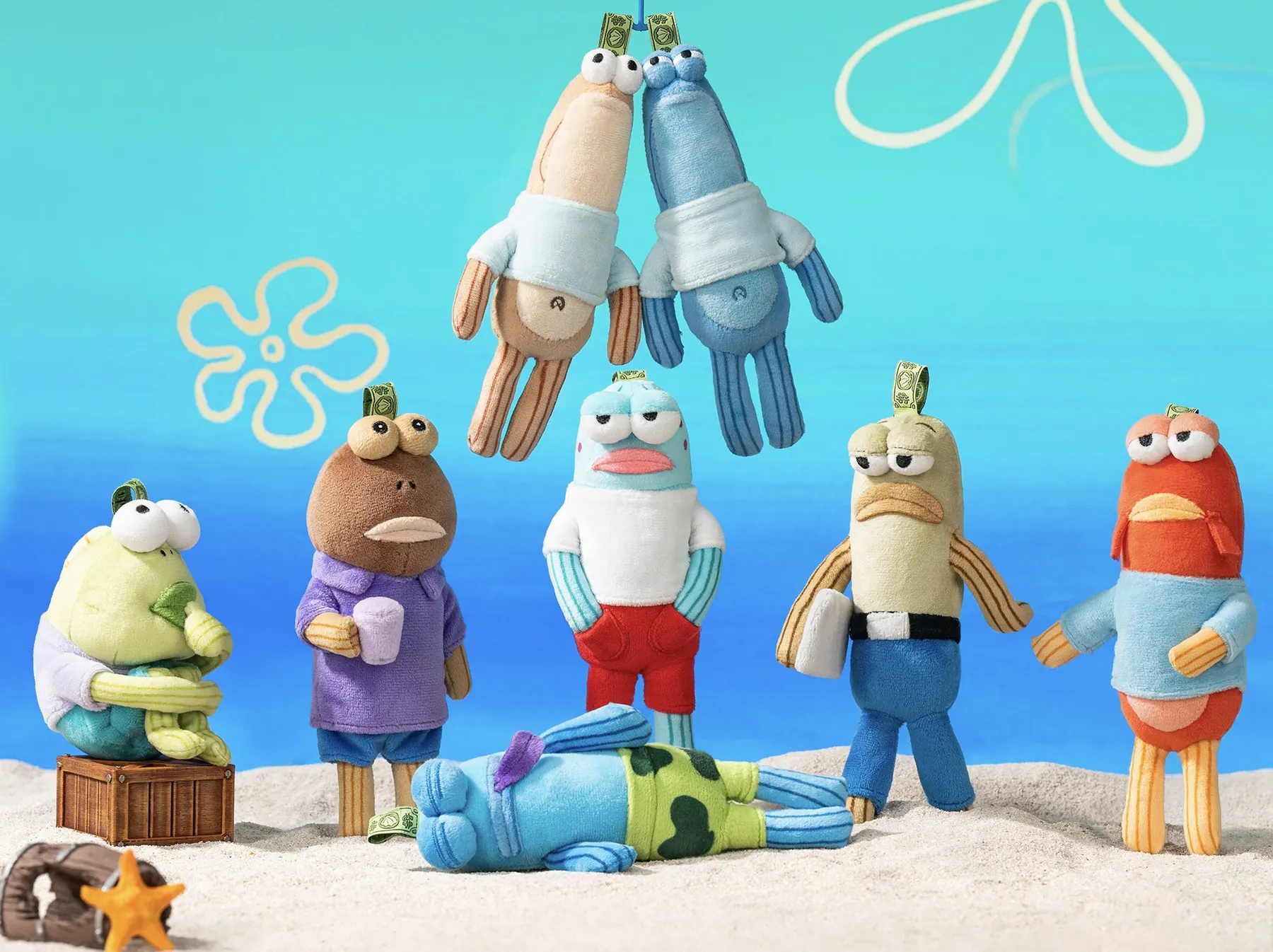SpongeBob SquarePants, the long-running American cartoon, is not just one of the greatest sources for memes in the West, but also in China, for both memes and stickers. Its memetastic power has manifested this year with not one, but two SpongeBob SquarePants viral collaborations from POP MART and Luckin Coffee, two of the leading IP collaborators in the Chinese market. The two team-ups highlight a key difference in how Chinese netizens and memesters use the IP: they focus on the background characters, the “extras”, rather than familiar faces like SpongeBob, Patrick, Squidward and Mr. Krabs.
POP MART struck first with its SpongeBob SquarePants collab during April Fool’s Day (愚人节, yu ren jie) but swapped the “愚” (yu, lit. foolish) with “鱼” (also yu, but meaning fish) and named the campaign, “April Fish’s Day” (鱼人节). So the campaign was mostly focused on the fish characters that populate the background of Bikini Bottom. For the collab, POP MART released Jellycat-like small plush bag charms of fish with various descriptors from “Cool Fish” to “Dopey Fish” and “Working Fish” to “Flat Fish” (躺平鱼, channelling the “lying flat” mentality among young people in China). These fish provide a wide range of “moods” or “literally me” projections for both memes and messaging stickers.
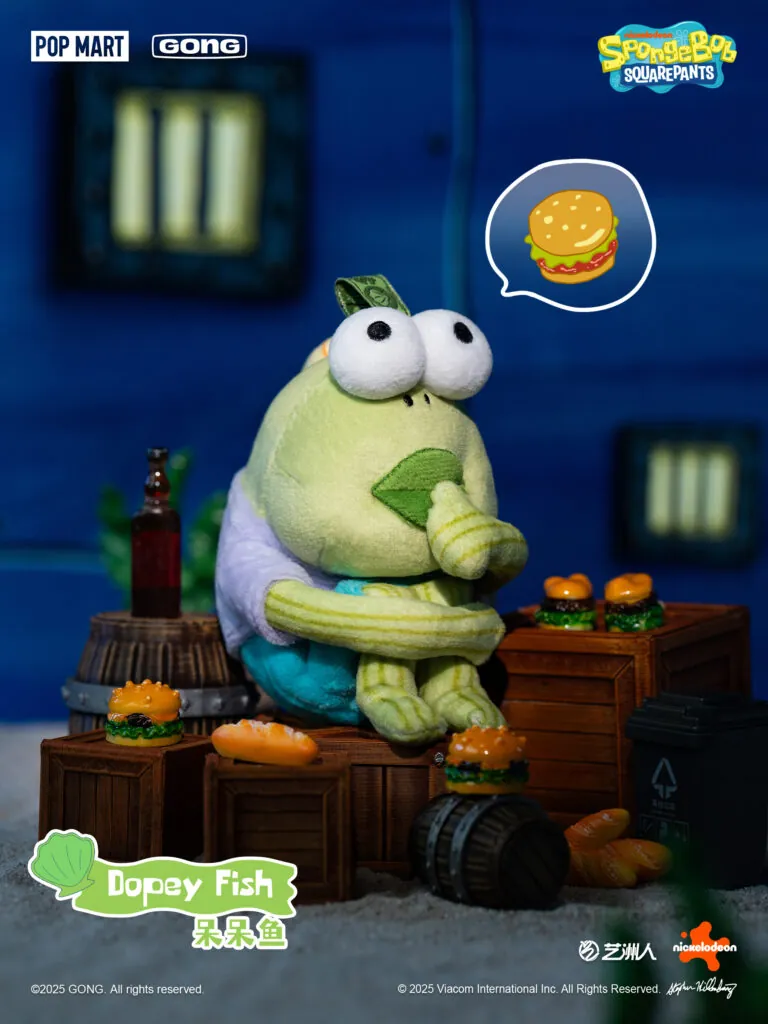
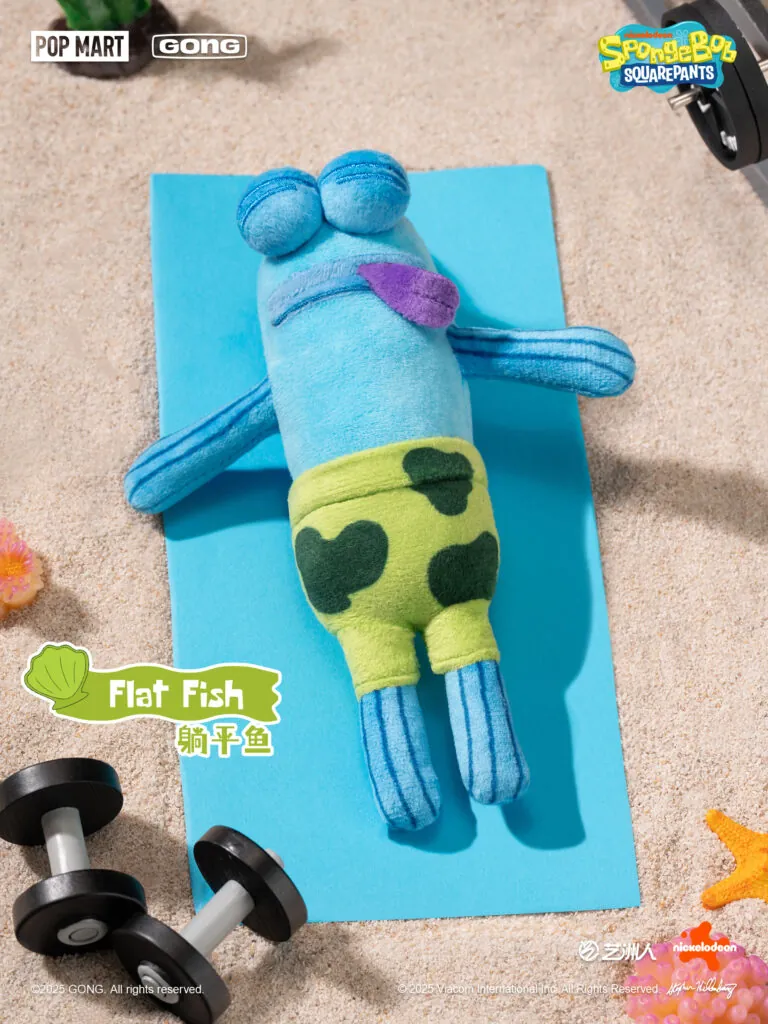
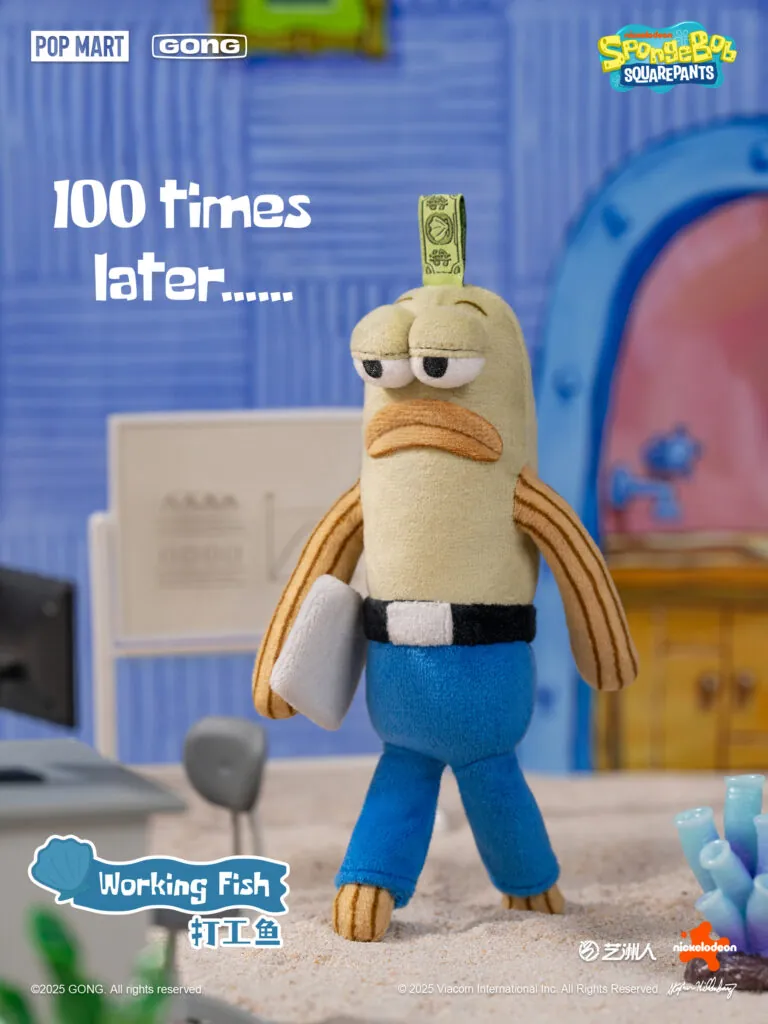
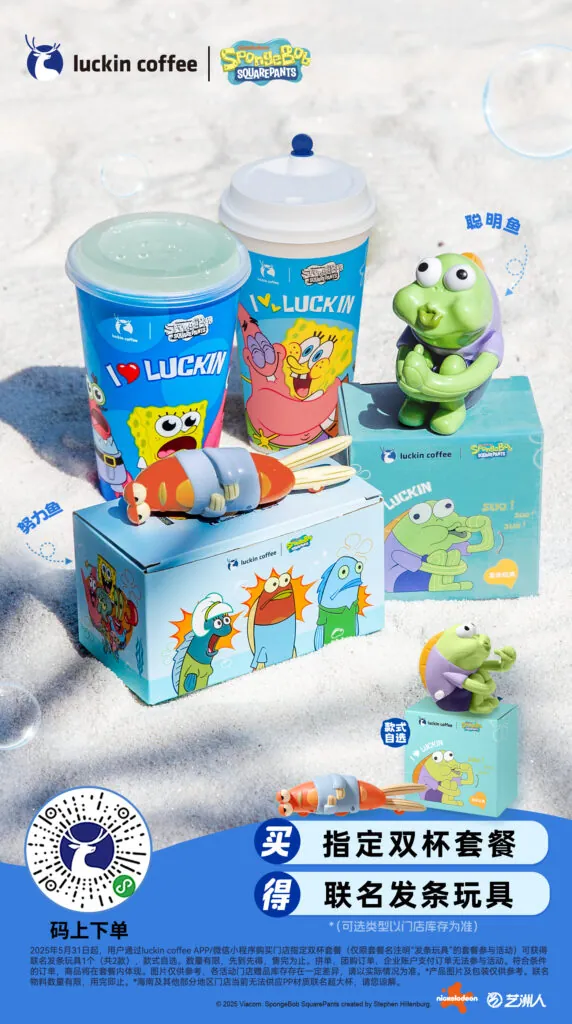
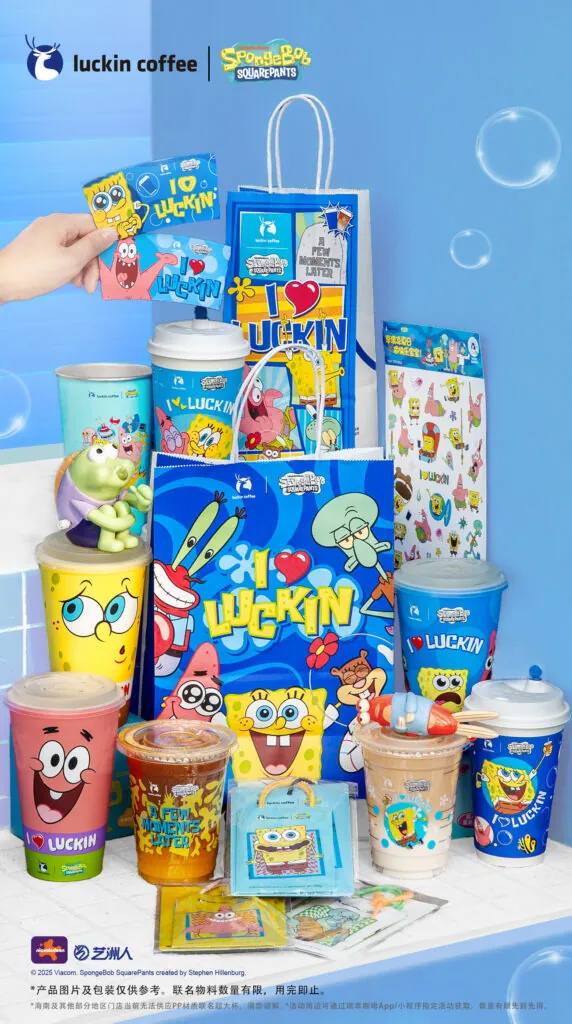
For Children’s Day in early June, Luckin Coffee launched its own SpongeBob SquarePants co-branding campaign. However, the Luckin one is a bit more diverse with exclusive crossover cups, sleeves, paper bags and decal stickers featuring main characters such as SpongeBob and Patrick. However, the main viral draws are the two wind-up toys of background fish characters. A dopey-looking, thumb-sucking fish named “Smart Fish” and a flat-laying, limp fish called “Hardworking Fish” captured the irony-loving “abstract” crowd, especially Gen Z. They quickly went viral and sold out.
The virality of the background fish characters is rooted in the “emotional value”-seeking mentality of the young Chinese consumers. They often use these characters mock-sincerely to express disillusionment, as if they are the “extras” in their own lives rather than the main character, combined with a post-ironic, self-deprecating humour. Fish memes and stickers are already widely used in messaging apps like WeChat, so having physical “goods” (谷子) seems like a guaranteed sell.




